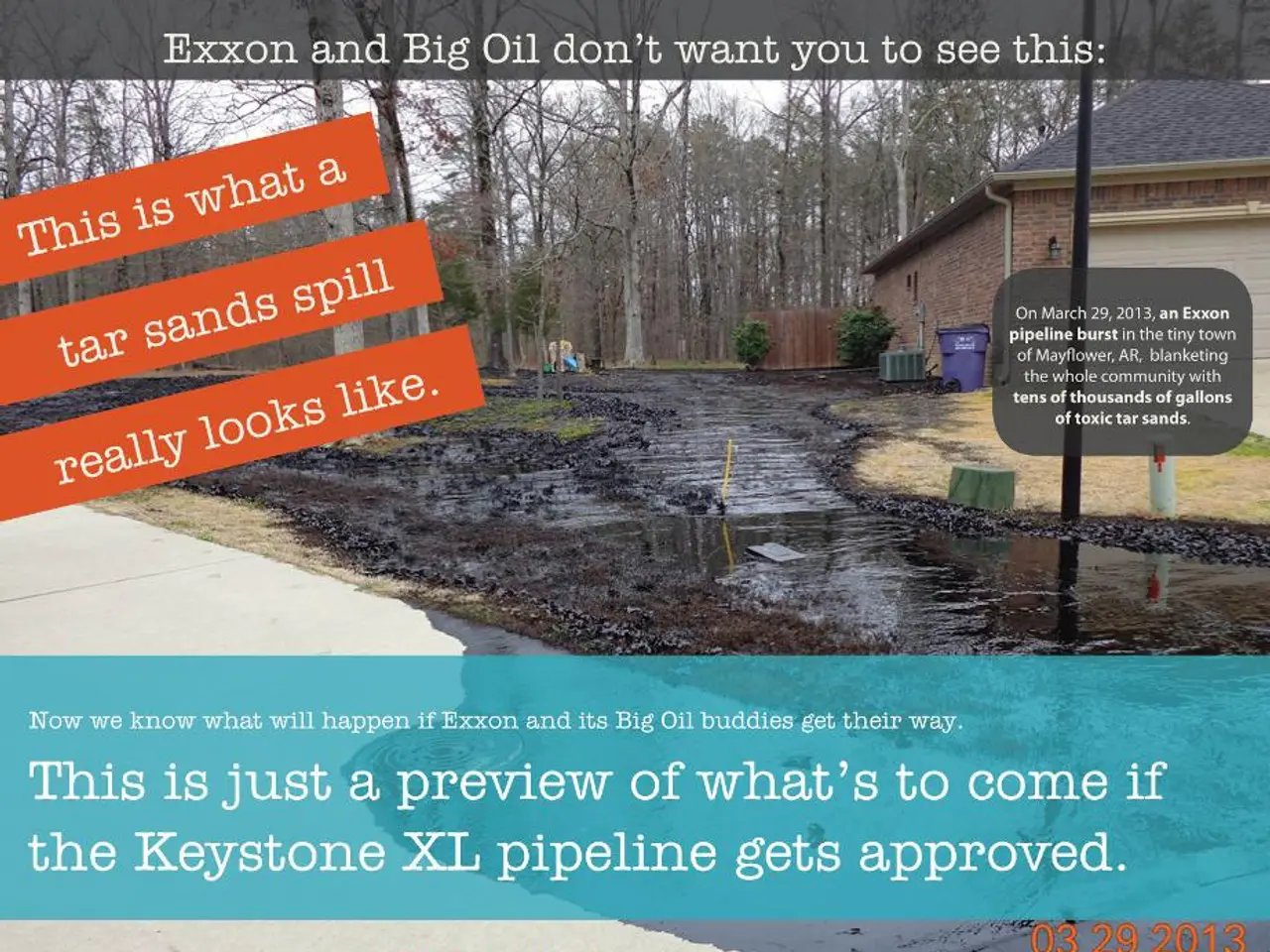Unveiling the Process of Dismantling Plastic
In Australia, the issue of plastic waste has long been a concern. Conventional plastic packaging, which is largely non-recyclable through households, contributes significantly to pollution, with over 80% ending up in landfills[1]. However, the development of biodegradable plastics offers a promising solution for managing organic and packaging waste.
These bioplastics, such as polyhydroxyalkanoates (PHAs), can degrade in weeks or months, even in home compost bins, without leaving toxic residues[1][4]. They can be part of regenerative cycles, where organic waste feeds bacteria that produce new biodegradable materials, promoting a circular economy approach[1].
Biodegradable plastics can decompose safely in soil and landfill environments without releasing methane or microplastics, further reducing environmental harm[3][4]. Their adoption has expanded beyond food packaging into agricultural films and retail products, helping to divert plastic pollution from waterways and soil[3].
However, the success of biodegradable plastics depends on several factors. Proper labeling and consumer education are crucial to ensure correct disposal[1][3]. The development of composting and organic waste infrastructure is also necessary to process bioplastics efficiently[1]. Lastly, avoiding contamination in recycling streams is essential to prevent biodegradable plastics from disrupting conventional plastic recycling[1][3].
When it comes to disposal, the label on a product can indicate whether it is biodegradable or compostable. If it's labelled 'home compostable', it can go in your home compost bin. Otherwise, it needs to go to a commercial composting facility[2].
Biodegradable plastics can be found in various products, such as bin liners, cling film, sandwich bags, and nappies. If you have a home compost bin or access to a commercial composting facility, then home or commercially compostable plastics are the best option for reducing your plastic footprint[2].
It's important to note that "biodegradable" doesn't necessarily mean the product will biodegrade as quickly as compostable plastic. Look for products that state they are 100% biodegradable and show the disposal method[2].
Reducing plastic waste is the best way to help the environment. Tips for reducing plastic waste include saying no to plastic bags, buying fruit and vegetables loose, storing leftovers in reusable containers, choosing products with less plastic packaging, using a lunchbox instead of sandwich bags and cling film, and recycling plastic waste where possible[5].
CHOICE, an organization that provides expert reviews and independent product testing, can help consumers make informed decisions. Members of CHOICE have access to information about what is safe for them and their families, and can get help if something goes wrong or a business treats them unfairly[6].
References:
[1] Hardesty, D. (2021). Bioplastics and their environmental impact. Retrieved from https://www.csiro.au/en/research/our-research-topics/sustainable-agriculture/bioplastics-and-their-environmental-impact
[2] Australian Packaging Covenant Organisation. (2021). Compostable plastics. Retrieved from https://www.packagingcovenant.org.au/resources/compostable-plastics
[3] Australian Government. (2021). Biodegradable plastics. Retrieved from https://www.environment.gov.au/protection/waste/degradable-plastics
[4] Australian Organics Recycling Association. (2021). Bioplastics. Retrieved from https://australianorganicsrecycling.org.au/bioplastics
[5] National Waste Policy Action Plan. (2021). Reducing plastic waste. Retrieved from https://www.environment.gov.au/protection/waste/national-waste-policy/action-plan/reducing-plastic-waste
[6] CHOICE. (2021). About CHOICE. Retrieved from https://www.choice.com.au/about-choice/about-us
- Investing in the development of environmental-science projects, such as those focused on producing biodegradable plastics, can be a financially rewarding business venture in the long term, as these innovations address pressing environmental issues like climate-change and plastic waste.
- In the realm of real-estate, considering properties with eco-friendly features, such as buildings made from or using biodegradable materials, could attract environmentally conscious buyers and increase the market value of such properties.
- The finance sector can play a crucial role in supporting environmental-science businesses by providing funds and incentives for sustainable practices, thereby promoting the growth of environmentally friendly industries like those producing biodegradable plastics.
- When making choices about daily consumers goods, individuals can opt for products labeled as biodegradable or compostable, as these choices help in reducing plastic waste and supporting the development of a circular economy focused on reusing and recycling organic waste.




